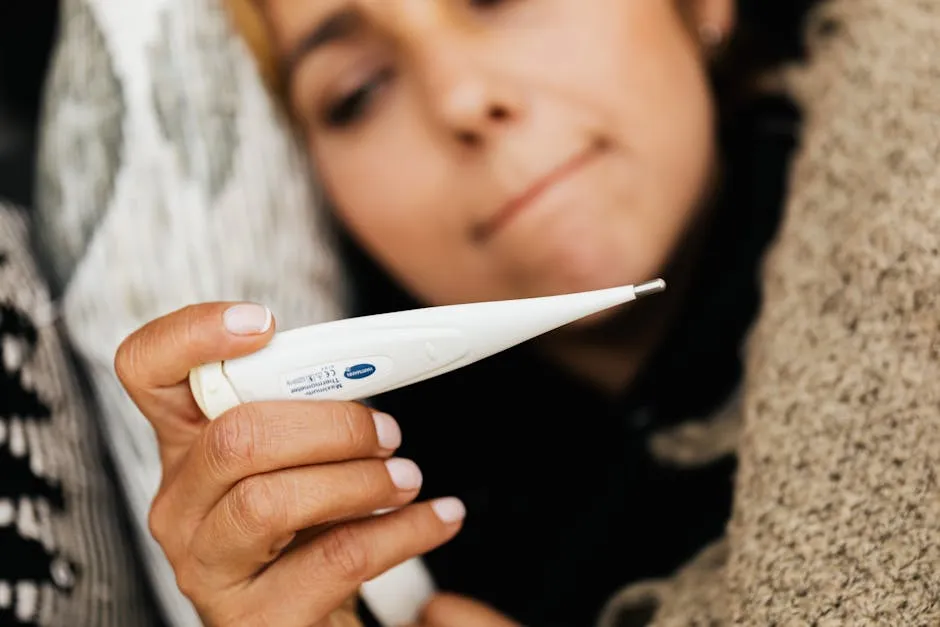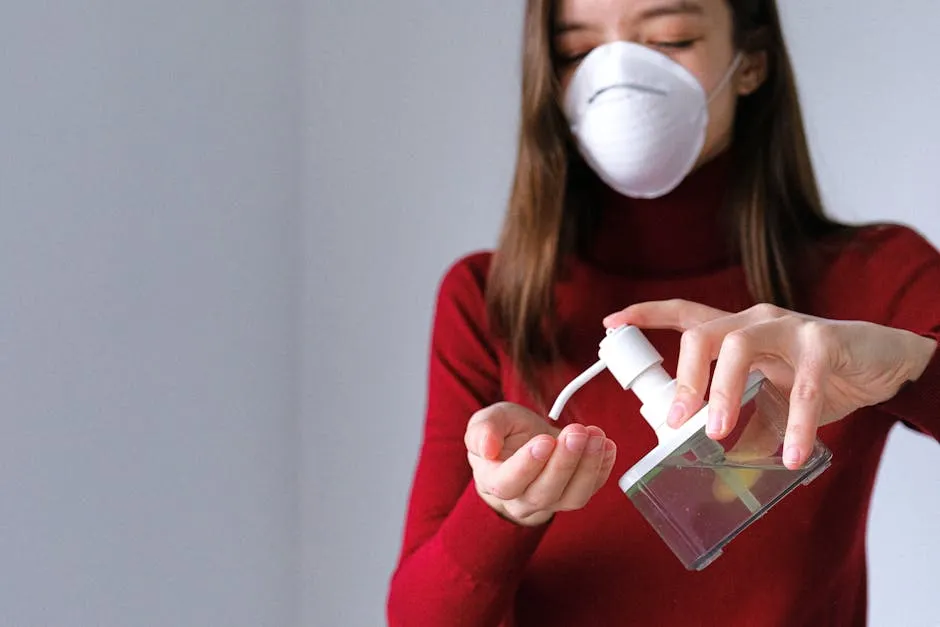
Why Does My Vagina Smell? Understanding Causes and Solutions
Introduction
Vaginal odor is a topic many women find challenging to discuss. But guess what? It’s completely normal! Every woman has a unique scent, and it can change for various reasons. Understanding the difference between normal and abnormal odors is essential. Don’t feel embarrassed; let’s explore this together.
To help you on this journey of self-discovery, consider using Vaginal pH Test Strips. These handy little tools can help you monitor your vaginal health and determine if your pH levels are in the normal range. Because who doesn’t want to be informed about their own body, right?
Summary and Overview
Each vagina has its own scent. Hormonal changes, hygiene, and diet all play a role. Normal odors can range from slightly tangy to a sweet smell. However, if you notice a sudden change, it might signal a health issue. Keeping track of your vaginal health is vital. Recognizing symptoms that need medical attention can make a big difference in your well-being.

Speaking of tracking, why not invest in a Journal for Tracking Health? This can be a great way to jot down any changes you notice and keep a record of your health journey.
Common Vaginal Odors
Normal Vaginal Odors
Normal vaginal scents can include a tangy or metallic aroma. These odors usually indicate a healthy balance of vaginal flora. For example, a slightly sour smell often suggests good bacteria at work. Hormonal changes throughout your menstrual cycle can also affect these scents. So, if you notice variations, don’t panic; it’s part of being healthy.

To further support your vaginal health, consider adding Probiotic Supplements for Women to your routine. These little powerhouses can help maintain the balance of good bacteria, making your body feel like the well-tuned machine it is!
Abnormal Vaginal Odors
Abnormal odors can be a cause for concern. If your vagina smells fishy, rotten, or foul, it may indicate an underlying issue. These scents might suggest a bacterial infection or another health concern. If you experience symptoms like unusual discharge or irritation, it’s time to consult a doctor. Remember, your body communicates; listen to it!

Possible Causes of Vaginal Odor
Bacterial Vaginosis (BV)
Bacterial vaginosis is a common condition. It happens when there’s an imbalance in the vagina’s natural bacteria. This imbalance often leads to a fishy odor, especially after sex. Other symptoms include grayish-white discharge and irritation.
Risk factors for BV include multiple sexual partners, douching, and smoking. Treatments typically involve antibiotics prescribed by a healthcare provider. Maintaining a healthy vaginal pH can help prevent BV and keep odors in check. You may want to use Natural Feminine Wash to help maintain that balance.
Trichomoniasis
Trichomoniasis is a sexually transmitted infection (STI). It can cause a strong, fishy smell along with yellow-green discharge. Symptoms may also include itching, burning, and discomfort during urination or sex.
Treatment is crucial to avoid complications. Antibiotics are effective for clearing the infection. If you suspect you have trichomoniasis, consult a healthcare provider for testing and treatment options.
Yeast Infections
Yeast infections can lead to a sweet or beer-like odor. These infections occur due to an overgrowth of yeast in the vagina. Symptoms often include thick, clumpy discharge, itching, and irritation.

Antifungal treatments are commonly prescribed for yeast infections. To prevent these infections, maintain a balanced diet and avoid excessive sugar intake. Keeping the vaginal area dry and clean also helps reduce the risk. Consider trying Herbal Tea for Women’s Health to support your overall well-being.
Hormonal Changes
Hormonal fluctuations can significantly impact vaginal scent. During your menstrual cycle, pregnancy, or menopause, you may notice shifts in odor. For example, estrogen levels rise during ovulation, often leading to a more pronounced scent.
Pregnancy also brings about unique changes. Increased blood flow and hormonal shifts can alter how your vagina smells. It’s normal to experience these changes, so don’t worry!
Hormonal birth control can further influence vaginal odor. Some women report changes in scent when starting or stopping hormonal contraceptives. This can be due to alterations in hormone levels that affect the vaginal environment. To help manage these changes, consider Herbal Supplements for Hormonal Balance.

Poor Hygiene
Inadequate hygiene can lead to stronger vaginal odors. It’s essential to maintain proper cleanliness to prevent unpleasant smells. Regular washing with mild, unscented soap and water is key.
Avoid douching, as it can disrupt the natural balance of bacteria. Instead, focus on gentle cleansing of the external area.
Here are some hygiene tips for better vaginal health:
- Change underwear daily and opt for breathable cotton. Try Organic Cotton Underwear for extra comfort.
- Shower after exercising to remove sweat and bacteria.
- Avoid using scented products, which can irritate and worsen odors.
By following these practices, you can promote a healthier vaginal environment.

When to Seek Medical Attention
It’s crucial to recognize when a vaginal odor signals a health issue. Persistent or strong odors, especially if accompanied by unusual discharge, itching, or irritation, warrant a doctor’s visit.
Don’t ignore warning signs. Conditions like bacterial vaginosis or trichomoniasis often present with noticeable changes in odor. Early intervention can prevent complications.
Listening to your body is vital for maintaining good vaginal health. If something feels off, consulting a healthcare provider is always a wise choice.
Prevention and Maintenance
Good Hygiene Practices
Maintaining good hygiene is essential for vaginal health. Start with these practical tips:
- Wash regularly: Use warm water and mild, unscented soap. Avoid harsh soaps that disrupt the natural pH balance.
- Wear breathable fabrics: Opt for cotton underwear to allow airflow. Avoid tight-fitting clothes that trap moisture.
- Avoid scented products: Scented soaps, sprays, and douches can irritate and worsen odor. Stick to unscented products for the best results.
- Change menstrual products often: Whether using pads or tampons, change them regularly to prevent odors from building up.
- Shower after exercise: Remove sweat and bacteria promptly to keep odors in check.
These simple practices form an effective vaginal care routine that helps prevent vaginal odor. To add a little zen to your hygiene routine, consider using an Essential Oil Diffuser to create a calming atmosphere.

Lifestyle Factors
Lifestyle choices significantly impact vaginal health and odor. Consider these factors:
- Diet matters: Foods like garlic, onions, and spicy dishes can influence odor. A balanced diet supports overall health.
- Stay hydrated: Drinking enough water helps dilute urine and reduces strong odors. Hydration is key to maintaining vaginal balance. A Water Bottle with Time Markers can help you keep track of your daily intake!
- Manage stress: High stress can disrupt hormonal balance, affecting vaginal scent. Engage in relaxation techniques like yoga or meditation.
- Incorporate probiotics: Foods like yogurt, kefir, and sauerkraut can support healthy vaginal flora. They help maintain the right balance of bacteria.
By focusing on these lifestyle factors, you can promote better vaginal health and minimize unwanted odors. And if you want to get your zen on, a Yoga Mat might be just what you need!

FAQs
What is a normal vaginal odor?
Normal vaginal odors can vary from slightly tangy to metallic. Each woman’s scent is unique and may change throughout her menstrual cycle. If you feel healthy and the smell is consistent with your norm, there’s usually no need for concern.
What does a fishy vaginal smell indicate?
A fishy odor is often linked to bacterial vaginosis or trichomoniasis. Both conditions can cause noticeable changes in discharge and may require medical treatment.
How can I prevent vaginal odor?
To maintain freshness, practice good hygiene. Wash the area daily with mild, unscented soap, wear breathable cotton underwear, and avoid douching or scented products that can disrupt natural flora.
When should I see a doctor for vaginal odor?
Consult a healthcare provider if you notice persistent or strong odors, especially if accompanied by unusual discharge, itching, or burning. These could indicate infections requiring treatment.
Can diet affect vaginal odor?
Yes, certain foods like garlic and onions can influence your natural scent. Staying hydrated and maintaining a balanced diet can help keep odors in check.
What to do if I have a strong odor?
If you notice a strong odor, first evaluate your hygiene practices. If it persists or comes with other symptoms, seek medical advice to rule out infections or other conditions.
Please let us know what you think about our content by leaving a comment down below!
Thank you for reading till here 🙂 And remember, a little self-care goes a long way. If you’re in the mood for some pampering, consider a Home Spa Kit or some Scented Bath Bombs for a relaxing soak.
All images from Pexels




